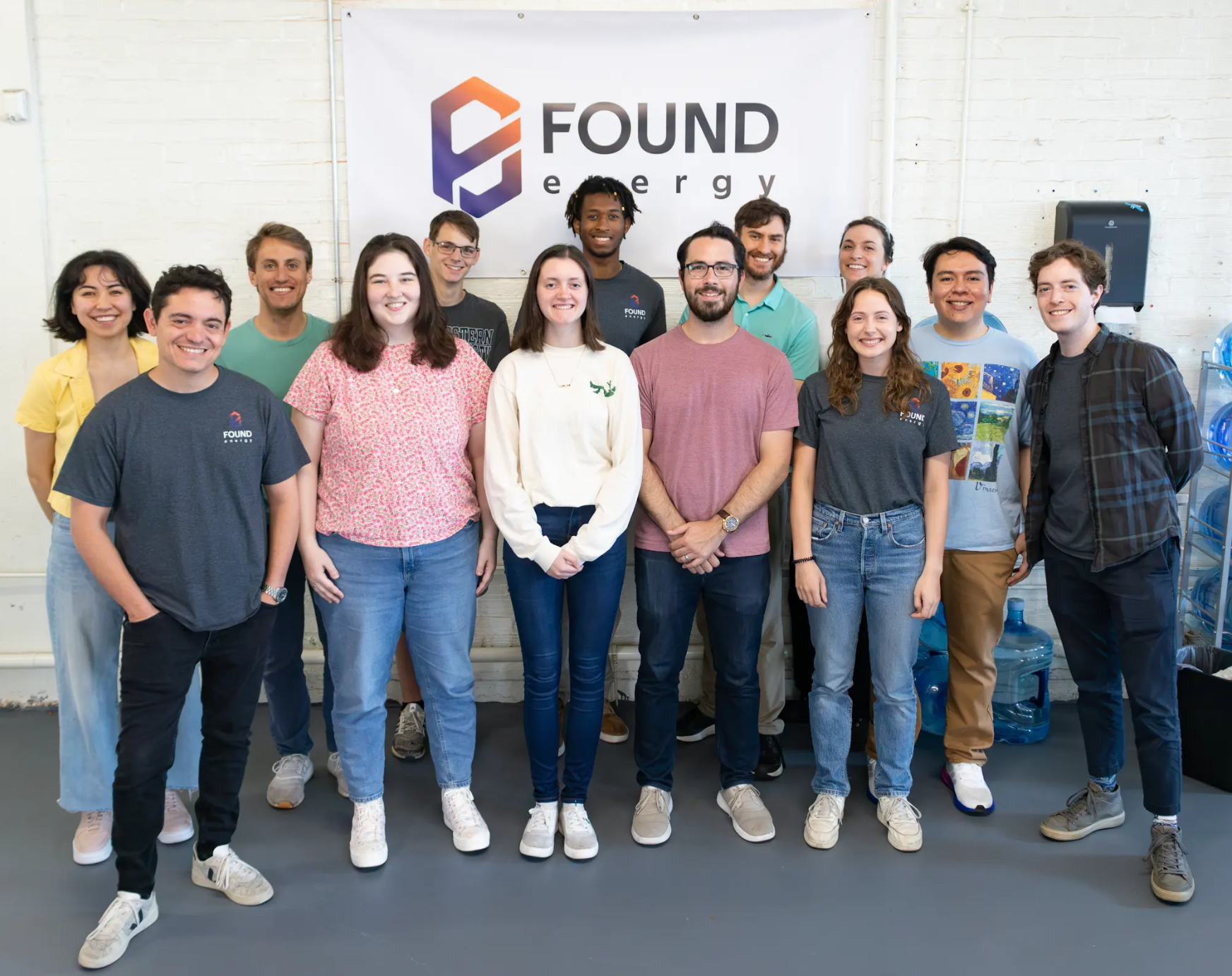A Q&A with Peter of Found Energy
While the promise of hydrogen in solving the climate crisis is widespread, carbon-free hydrogen is currently both expensive to produce and difficult to store. Additionally, materials with inherently high hydrogen storage densities — aluminum, plastics, and biomass — are either sitting idle in landfills, or worse, polluting natural ecosystems around the world.
Found Energy is addressing both of these challenges with novel energy carriers to bring clean energy to the most difficult to decarbonize industries on earth like industrial heating (20% of global CO2 emissions), maritime shipping (3% of global CO2 emissions), and more.
The company has developed an aluminum-thermal power system that continuously generates carbon-free industrial heat, hydrogen, and alumina trihydrate (ATH) on-site from various aluminum feedstocks. Both compact and modular, Found Energy’s technology unlocks a promising new tool to accelerate heavy industry’s transition away from fossil fuels.
Fresh off the heels of their $12M seed funding announcement in TechCrunch, we sat down with Founder and CEO, Peter Godart, to chat through some of the barriers facing their technology, as well as technical milestones they hope to achieve over the next 12-months. Be sure to scroll to the end to read more about some of the personal reasons why Peter shifted from his work in aerospace to working on climate tech.
Within energy storage, what are the major barriers that affect customer adoption? How does your aluminum-thermal power system address their concerns?
At Found Energy, we’re not just focused on carbon-free energy storage, but also energy transportation - literally moving renewable energy from where it is abundant to where it is not.
The problem is twofold for heavy industrial decarbonization:
1) A lot of heavy industry operates where there is no direct, local access to renewable energy; and
2) Industrial heat — responsible for about 10% of global carbon emissions — is particularly difficult to electrify, making these industries especially reliant on fuels.
Today, we use fossil fuels to solve the energy transport problem (i.e. not every industrial energy consumer is sitting on top of fossil fuel deposits), as they are energy-dense, relatively inexpensive, and easy to move around. Globally we move around 65 TWh / day as oil and gas by boat, for example. Their replacements will have to have similar positive attributes without the negative ones, and our take is that aluminum fuels check all these boxes. Aluminum is the third most abundant element in the Earth’s crust, more energy dense than diesel, safe and easy to store and transport, doesn’t degrade over time, and its production is already electrified. In fact, we can extract about 70% of the energy put in as electricity initially as heat in our aluminum-thermal power systems.
So, the idea is we use aluminum metal as a new energy transport vector between regions with lots of extra baseload renewables to heavy industry in more remote energy markets. In the short term, we’re bootstrapping this transmission network using low-grade waste aluminum, helping improve circularity and reducing mining waste and emissions.
What are the major technical milestones you hope to achieve over the next 12 months and where will Found Energy be in 5 years?
We’re currently scaling our technology and working to deliver several industrial pilot systems in the coming year. Early applications are relatively straightforward, replacing process heat generated by fossil fuels with clean heat extracted from our aluminum-thermal power systems. Over a slightly longer period, we aim to apply our technologies to other difficult-to-abate sectors like maritime shipping propulsion, long-duration energy storage, and remote grid-scale electricity generation.
How did you personally become so passionate about decarbonization and what has influenced you to start a company in this field?
I started my career with a slightly more pessimistic outlook - exploring the feasibility of backup plans for humanity on other planets like Mars. Through that work, I came to the conclusion that the other options aren’t that great, and we better do all we can to fix the existential problems we face on Earth in the first place. In my opinion, climate change is among the most serious and solvable of these problems. I had already been working on aluminum-based energy carriers as a passion project, and I saw the potential of applying this approach to decarbonization. This led me to pursue a PhD to advance the technology to the point where commercialization made sense, and once it did, I left academia to start Found Energy and never looked back.
